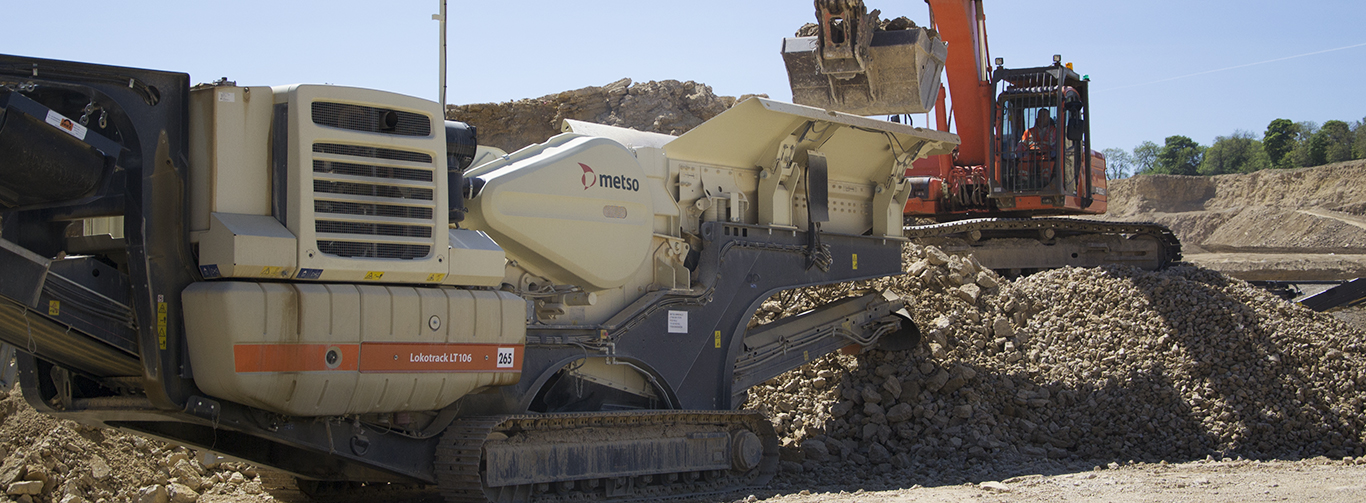“Each one of our LT106’s consumes 9 liters less fuel per hour than its predecessor LT105. That’s a 35 percent difference,” said Jo Banner, Banner Contracts’ Company Director.
After six months in operation at Lafarge Tarmac Thrislington quarry, the Lokotrack LT106 mobile plants’ fuel consumption averages around 15.5 liters per hour. According to Jo Banner, these figures make them the most fuel-efficient mobile crushers in his company’s fleet. And with fuel prices in the UK skyrocketing from 35 pence per liter to 70 pence per liter in just six years, shaving a third off the fuel bill makes a real difference.
“Not only have fuel prices increased, they now vary considerably in a matter of days, meaning that fuel costs are hard to predict,” Jo Banner added.
A unique deposit
All of the processing at Thrislington quarry, home of the two new Lokotrack LT106 mobile crushing plants, is carried out by Banner Contracts.
This individual deposit has a specific chemistry that meets the requirements for supplies to the iron and steel industries.
The quarry produces kiln feed, which the onsite customer Steetley Dolomite supplies for steelmaking after calcination, and lump stone for the blast furnace. In both cases, the product acts as a flux, reducing temperature and removing impurities from the iron ore.
The fines produced during the process are also supplied for iron making as part of the sinter, being blended with various materials such as iron ore and coke.
These products require a chemistry consistency within the clients set parameters: low values of silica, sulphur and alumina, with a minimum value of magnesium oxide of 18 percent.
In addition, the quarry makes several co-products, including sub base, capping, and aggregates and sand, for concrete making.
“The nature of the process lends itself to having multiple smaller plants instead of one large one,” Jo Banner explained.
“Lokotrack is good on tracks and easy to move. It only takes around 30 minutes to move the machine, tidy up the spot and start crushing again,” he continued.
The flexibility of the mobile equipment enables the operators to easily utilize different faces to help make sure that the composition of the kiln feed is just right. It has also made experimenting and fine-tuning the process quick and easy. Equipment can be regrouped time and again to try out new combinations.
It’s not just the machine, it’s the relationship
Mobile flexibility was not the only reason behind Jo and his father Mike Banner’s decision to invest in the Lokotrack LT106 plants. The standard of access and the guarding features of Lokotrack also played a part in the decision. For Banner Contracts, health and safety are always a crucial consideration.
According to Jo Banner, another important factor was the level of service, support and the personal relationship Metso provides.
“Whenever we had problems during the commissioning phase, we just called and a Metso service engineer would come over and take a look.”
Banner Contracts was so pleased with the first two LT106 plants that they placed an order for a third one in May 2013. After a successful delivery, it is now in operation at one of the company’s other customer sites.
